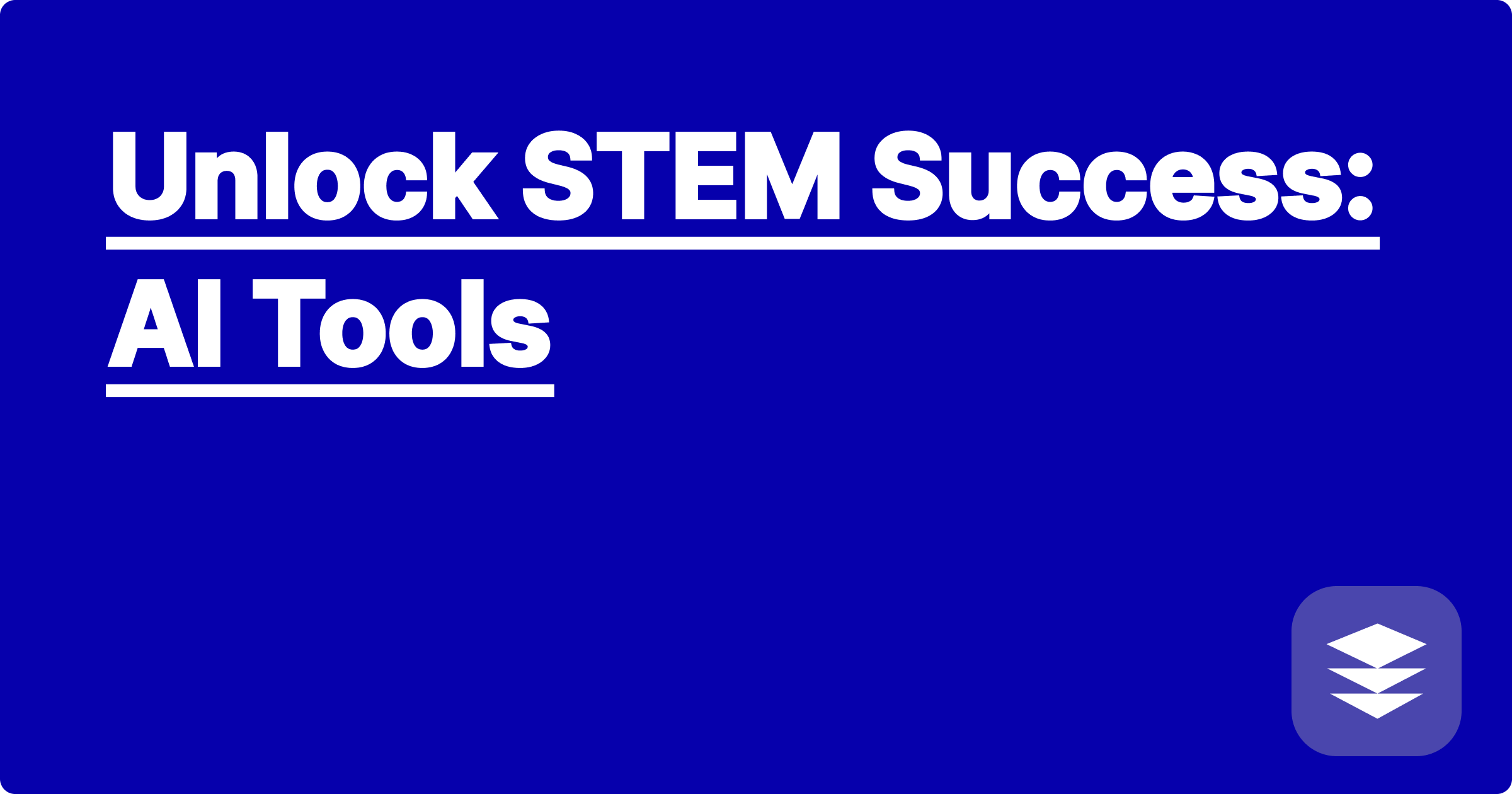
The ever-evolving landscape of STEM fields presents a significant challenge for students and researchers: the sheer volume of information and the increasing complexity of problems. Staying ahead requires not only a deep understanding of fundamental concepts but also the ability to efficiently process, analyze, and apply this knowledge. Artificial intelligence offers a powerful suite of tools that can significantly enhance productivity, accelerate learning, and unlock new possibilities for innovation within STEM. These tools can assist with everything from literature reviews and data analysis to coding and problem-solving, ultimately empowering STEM professionals to tackle complex challenges and achieve greater success.
This matters because the competitive nature of STEM fields demands continuous learning and adaptation. AI tools can provide a crucial edge by automating tedious tasks, offering personalized learning experiences, and facilitating deeper understanding of complex concepts. By embracing these technologies, students and researchers can not only improve their academic performance but also develop valuable skills that are increasingly sought after in the modern workforce. Mastering the use of AI in STEM is no longer optional, but rather a necessity for those seeking to thrive in these dynamic fields.
One of the most significant challenges in STEM is the difficulty of efficiently navigating the vast and rapidly expanding body of scientific literature. Staying up-to-date with the latest research, identifying relevant papers, and extracting key insights can be a time-consuming and often overwhelming process. Traditional search methods can be inefficient, requiring manual sifting through numerous articles and often failing to uncover hidden connections between different research areas. Furthermore, the complexity of scientific concepts and the specialized language used in research papers can pose a barrier to understanding, particularly for students who are new to a field. This information overload can hinder progress and make it difficult to identify promising research directions. Similarly, analyzing large datasets, performing complex calculations, and writing error-free code can be incredibly time-consuming and require specialized expertise.
AI-powered tools like ChatGPT, Claude, and Wolfram Alpha offer a transformative approach to tackling these challenges. ChatGPT and Claude, for instance, can be used to summarize research papers, extract key findings, and even generate potential research questions. These language models can process vast amounts of text data, identify patterns, and provide concise summaries, significantly reducing the time required for literature reviews. Wolfram Alpha, on the other hand, excels at computational tasks, allowing users to perform complex calculations, solve equations, and visualize data with ease. By leveraging these tools, STEM students and researchers can streamline their workflows, gain deeper insights from data, and focus on higher-level thinking and problem-solving.
To effectively utilize these AI tools, start by clearly defining the problem or task you want to address. For example, if you need to review literature on a specific topic, formulate a precise research question. Next, select the appropriate AI tool for the task. For literature reviews, ChatGPT or Claude would be suitable choices. For mathematical computations or data analysis, Wolfram Alpha would be more appropriate. Then, input the necessary information into the chosen tool. This might involve providing keywords, research questions, or datasets. Carefully review the output generated by the AI tool, ensuring its accuracy and relevance to your needs. Refine your input or adjust the tool's parameters as needed to obtain the desired results. Finally, integrate the AI-generated insights into your workflow, using them to inform your research, accelerate your learning, or enhance your problem-solving process.
Consider a researcher studying the applications of machine learning in drug discovery. They could use ChatGPT to summarize recent research papers on this topic, quickly gaining an overview of the current state of the art. By providing keywords like "machine learning," "drug discovery," and "deep learning," the researcher can obtain concise summaries of relevant papers, saving hours of manual reading. Alternatively, a student struggling with a complex physics problem could use Wolfram Alpha to solve equations and visualize the concepts involved. Entering the equation, for example, "F=ma" along with specific values for mass and acceleration, Wolfram Alpha will not only calculate the force but also provide related information and visualizations. Furthermore, a programmer working on a data analysis project could use ChatGPT to generate code snippets for specific tasks, such as cleaning and preprocessing data, significantly speeding up the development process.
To maximize the benefits of AI tools in STEM, it is essential to develop a critical and discerning approach. Always verify the information generated by these tools against reliable sources and use them as aids rather than replacements for human understanding and critical thinking. Furthermore, explore the different functionalities and features offered by various AI tools to identify the best tools for specific tasks. Experimenting with different prompts and input parameters can help optimize the output and gain deeper insights. Integrating these tools into your daily workflow can significantly enhance your productivity and learning process. Finally, stay updated on the latest advancements in AI and explore new tools as they emerge to maintain a competitive edge in your field.
Concluding, the integration of AI tools into STEM education and research offers unprecedented opportunities for advancement. By embracing these technologies and developing the skills to use them effectively, students and researchers can unlock their full potential, accelerate their learning, and contribute to groundbreaking discoveries. Start exploring these tools today and discover the transformative power of AI in STEM.
AI: Your Coding Homework Buddy
AI: Automate Engineering Tasks